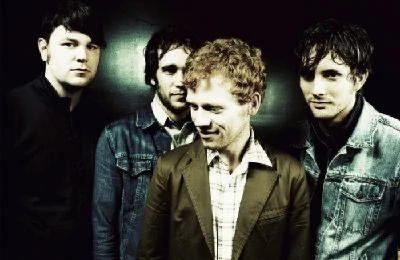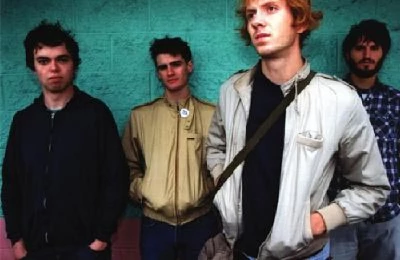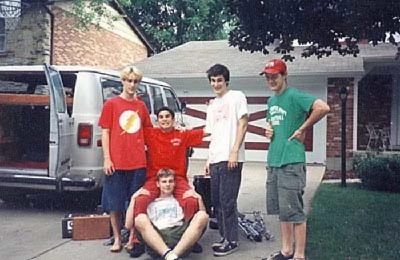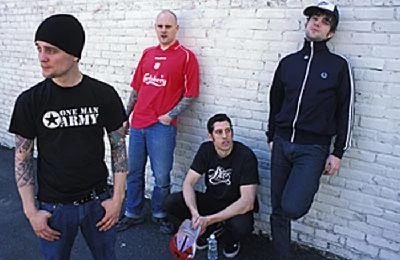Miscellaneous
-
Interview
published: 18 /
10 /
2004
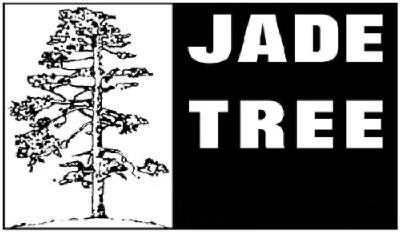
After having spent over nearly a decade at the top with his alternative rock label Jade Tree, co-owner Darren Walters explains to Ben Howarth why other things, like a regular Friday night soccer game,have begun for him to take on increasing meaning
Article
"Having spent half my life working completely within music, I perhaps need to explore other things, and I'm trying to explore other areas. For example, we now take part in a regular soccer game on Friday evenings".
Darren Walters has been a music obsessive for most of his life, and has been running the Jade Tree label for nearly as long. You might think that the above statement signified a dimming of his musical interest, but in fact, it signifies how deep his involvement has been. It is only now, after having run a label for more than a decade that he feels the need to perhaps branch out into other areas. And this is the best thing, they are Americans. That. Like. Football. What's not to love?
Darren and his friend Tim Owen both ran separate labels in the late 80's. Both emersed themselves in the straightedge and hardcore scenes that so dominated American independent music. It was in 1990, after both labels had folded, that Tim persuaded Darren to have another go as a partnership,choosing the name 'Jade Tree'. For the first few years, it was like any other independent label, and essentially the part time project of two college students whose main focus was on their studies, and presumed future careers.
"If you'd told me back then" Darren reflects, "that I'd still be doing this into my 30's, and that not only could I be making a living from it, but that we'd be able to have an office and employ other people, that it could be a career, I certainly wouldn't have believed you."
If an independent is able to make the step from being, to be slightly rude about it, a hobby to being a serious franchise, it needs a "breakthrough" record, or better than that, two. Some evolve naturally, and always seem to have a sense of a higher purpose (perhaps Creation and Rough Trade are good examples of this), but most need that springboard. The other side of the coin is that the breakthrough cannot be so big that it renders the label irrelevant.
"I would say that the two albums that have been most important for the label are the first Promise Ring ('30 Degrees Everywhere', 1996-Ed) and Lifetime ('Hello Bastards', 1995-Ed) albums that we released. I wouldn't want to pick a favourite record from the label, but these are certainly the ones that established us, and also they are albums that people still seem to be interested in, that are still being bought and listened to."
British listeners first really heard about Jade Tree when emo hit the mainstream back in 2001. Bands like Lifetime and The Promise Ring represented integral parts of the genre's history, and Jade Tree was also able to offer up the unofficial "godfather of emo"Jonah Matranga's two new projects, the electric - sadly short lived - New End Original and the gentle folk-indie of Onelinedrawing. But, though this provided valuable exposure it created the misconception that Jade Tree was an emo label, to be lumped in with Revelation, Vagrant et al. In fact, listening to the label's sampler series, 'Location Is Everything' provides a good example of work from the whole of the indie spectrum . Yes, there is hardcore and what some call "emo" but there's also math and post-rock, electronica, metal and plenty that defies simplistic classification.
"I don't really think there is anyone out there that likes everything we put out. I think we try to release a wide spectrum of music, and essentially we just release music that we like. We don't aim for any specific audience." Though he says that, I think there are plenty of music followers who have come to see Jade Tree as a mark of quality, "Dischord and Touch And Go are the labels that I see as being especially good" Darren says, "and I suppose that we aim to emulate them. I actually got the chance to hang out with Ian Mackaye (Dischord co-owner and Fugazi frontman-Ed) in Washington DC, when I went there and it was such a fantastic experience". Perhaps, Jade Tree has less prestige than the likes of Dischord at this stage, but - at the risk of being accused of overstatement - it is well on its way to matching it. Like these labels, it has a good quota of "legendary" acts - the aforementioned Lifetime and Promise Ring, but also Cap'n Jazz and Jets To Brazil stand out. There are also "established" acts like Pedro The Lion, Joan of Arc, Strike Anywhere, Cex and a fair amount of rising talent, in particular the very promising Despistado.
Darren is a true music enthusiast, and the label's brave roster and open signing policy is a testament to this. "There have been bands we've liked that, for various reasons, we haven't been able to sign, but we don't have a geographical or genre basis to the label, and essentially if we like a demo, we will try and see the band live, and if we are impressed, sign them". It is precisely for this reason that the output of Jade Tree is so varied.
"I think that I've dedicated so much of my life to music that I may have missed other things. Now, we play soccer on Fridays, and sometimes that means missing a show, but I think that its important not to be closed off. It's great. This year we've been able to follow the Premiership on TV. We can see the Sky Sports games out here. I've been trying to root for one of the lower teams, Norwich, but its amazing to be able to see Arsenal at the moment." A lot of our conversation was about football, I have to say I was happily surprised to find an American that followed it, and surprised to find that he is less isolated than I would have thought. He is just as surprised to find that there are plenty of British people that are happy to stay up late to watch live baseball I am one of them) when it is considered to be a declining sport in the US.
That doesn't mean that his passion for music has been lost. We also talk at length about how strange it is that the American mainstream is now being filled by bands that sound like British indie from the 1980's, and moan about about how boring most of this music is, although we are both in agreement that Interpol are a wonderful exception, and a uniquely exciting band.
Jade Tree is a label that has a wide history, one that has perhaps been unfairly disregarded by much of the British music scene, and a current roster that bristles with fresh talent. The records are also packaged with an understated sense of style, are decently priced, and are of a high standard. It seems to have achieved what so many other labels dream of. To forge an identity that outlives the popularity of one genre, to make a living without compromising the label's vision and to find the right balance between music and life, and not get bogged down by the workload of running a label. To use a line borrowed from Jade Tree's only real peers, Deep Elm, 'This Is Indie Rock.'
Label Articles:-
Sheffield Phonographic Corporation (7)
Picture Gallery:-
